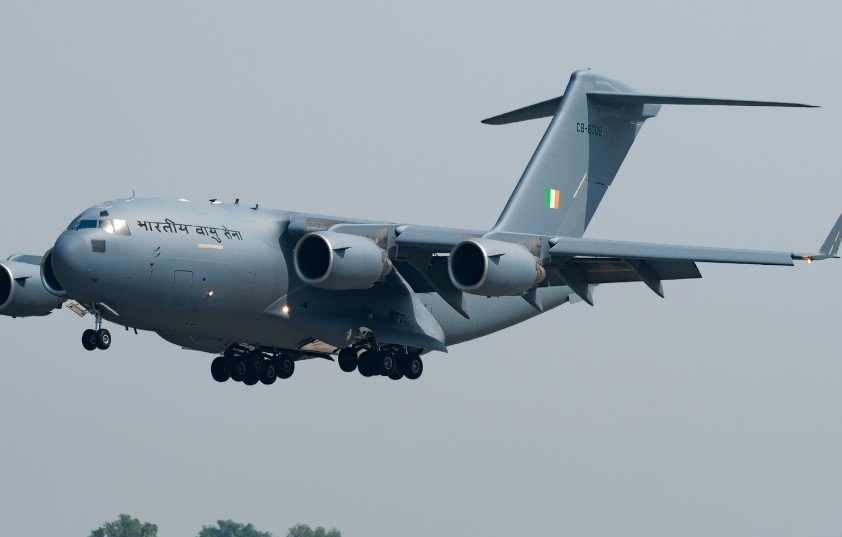The Israel-Iran conflict is sending shockwaves through Thailand’s tourism economy, with Bangkok bracing for a sharp drop in Middle Eastern arrivals.
Thailand’s travel industry has been thrown off balance just as it was finding its footing again. Airlines rerouting. Hotels half-booked. And a sharp sense of déjà vu setting in. This time, the culprit isn’t a pandemic — it’s war. With airspace closures rippling across the Middle East, Thai officials are quietly staring down one of the steepest regional travel declines in recent years.
Tourism Authority Flags 50% Drop in Key Middle East Markets
Thapanee Kiatphaibool, governor of the Tourism Authority of Thailand (TAT), didn’t sugarcoat the outlook. She warned that arrivals from five key markets — Iran, Iraq, Jordan, Lebanon and Syria — could plunge by as much as half in June.
Just last year, these countries made up 7% of Thailand’s Middle East arrivals. That was 100,781 visitors. Now, officials are recalibrating expectations down to a painful 3,500–5,000 this month.
It’s not just numbers on a chart either. These drops coincide with Eid al-Adha, normally a period packed with outbound travel from the Middle East. In 2024, over 7,000 tourists visited during the festival. This year, many have cancelled or postponed their plans altogether.

Airlines Reroute, Mahan Air Cancels
While most carriers are still flying — albeit with detours — the route disruptions are beginning to pile up.
Iran’s Mahan Air is the first major name to halt flights entirely to Bangkok and Phuket. That one airline alone, Thapanee noted, has caused the “Iranian market to evaporate” temporarily. With Iran’s skies off-limits due to the conflict, other airlines like Emirates, Etihad, Qatar Airways, Flydubai, Air Arabia, and Oman Air have all adjusted routes.
One paragraph. One sentence.
Still, the full impact hinges on the conflict’s trajectory. A quick resolution could mean a recovery by July. But if tensions stretch out, so too might the slump.
Major Destinations Already Feeling the Chill
Hotels in four Thai cities are already under pressure. Bangkok. Pattaya. Phuket. Chiang Mai.
These aren’t just tourist hotspots. They’re linchpins for Thailand’s tourism revenue. And they’ve long relied on Middle Eastern travellers, especially during high seasons like this one. Many hotel operators have already seen advance bookings slow and occupancy rates wobble.
-
Middle Eastern visitors typically book longer stays and premium rooms, making them especially important to high-end resorts.
For places like Phuket — where beachside resorts cater to Gulf families — the sudden vacuum is hard to miss. Hoteliers there are now fielding cancellations almost daily.
Broader Risk to Gulf Countries Next
TAT officials are keeping a wary eye on Saudi Arabia, UAE, Oman, Kuwait, Qatar and Bahrain. These six countries make up 80% of the total Middle East market for Thailand.
Thapanee didn’t say it outright, but it’s clear: if travellers from these Gulf states start viewing air travel as risky, Thailand could be in for a longer tourism winter.
Here’s a simple look at how crucial these markets are:
| Country | Share of Middle East Market | Estimated Monthly Arrivals (Pre-Conflict) |
|---|---|---|
| Saudi Arabia | 24% | ~24,000 |
| United Arab Emirates | 18% | ~18,000 |
| Kuwait | 12% | ~12,000 |
| Qatar | 10% | ~10,000 |
| Oman | 9% | ~9,000 |
| Bahrain | 7% | ~7,000 |
Just one month of disruption could easily wipe out over 80,000 visitors if these six markets pull back. Not to mention the economic ripple effect.
Airlines Still Betting on Recovery — For Now
Despite the turbulence, not all hope is lost.
Several carriers have reaffirmed their plans to roll out new routes to Thailand later this year. No names were disclosed, but TAT confirmed those routes are “still on the books,” which means airlines haven’t scrapped their schedules — yet.
One sentence paragraph.
This, to some extent, reflects cautious optimism that the crisis may not last long. But the clock’s ticking. If conflict escalates or spreads to other countries, more airlines might follow Mahan Air’s lead.
Ground-Level Worries in Tourism Circles
Tour guides. Hotel owners. Taxi drivers. Everyone’s feeling the slowdown.
In Pattaya, a hotelier who requested anonymity said his property usually hosts around 300 guests a week from the Gulf. “We have less than 40 this week. Forty. It’s not even enough to cover payroll,” he said with visible frustration.
Another tour operator in Chiang Mai told local media, “We stocked up for Eid. But now, we’re just sitting on unused inventory. It’s dead quiet.”
One operator even reported refunding a group of 60 guests from Jordan after their flights were cancelled without clear rebooking options. That’s the kind of blow that small businesses can’t afford to take back-to-back.
Government Hopeful for July Rebound
Despite the dark cloud hanging over June, officials are holding out hope.
Thapanee said that if tensions ease before the month wraps up, July could see a rebound. She pointed to previous years when short-term dips were followed by quick rebounds. But she admitted there’s a big “if” at the center of that bet.
Of course, much of it is out of Thailand’s hands. The geopolitics are playing out thousands of kilometers away, but the fallout is landing right on its beaches and hotel lobbies.
